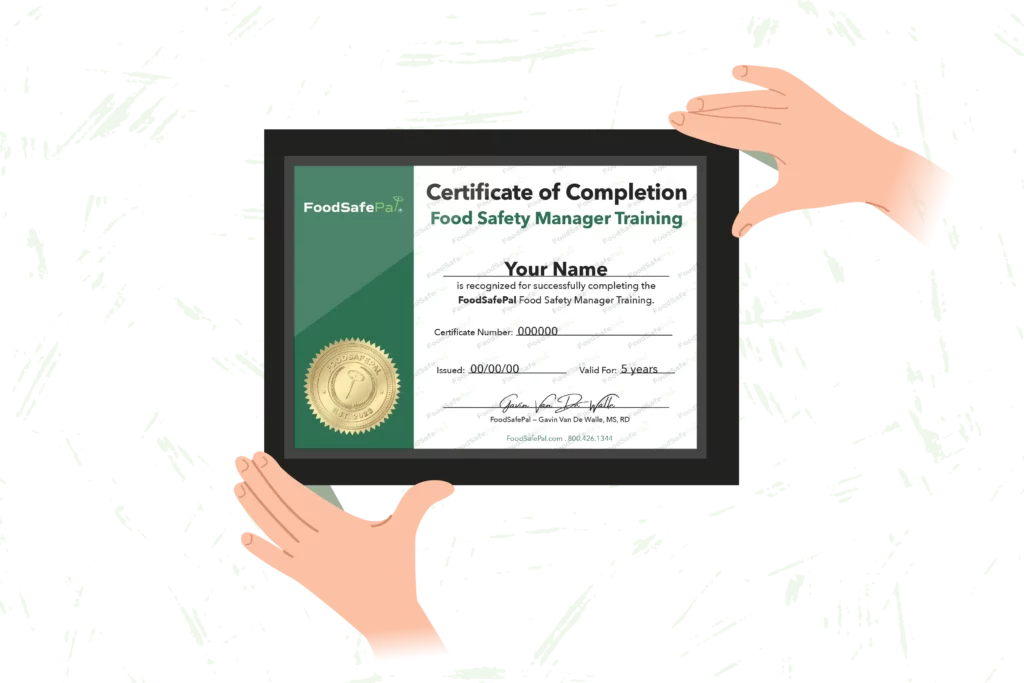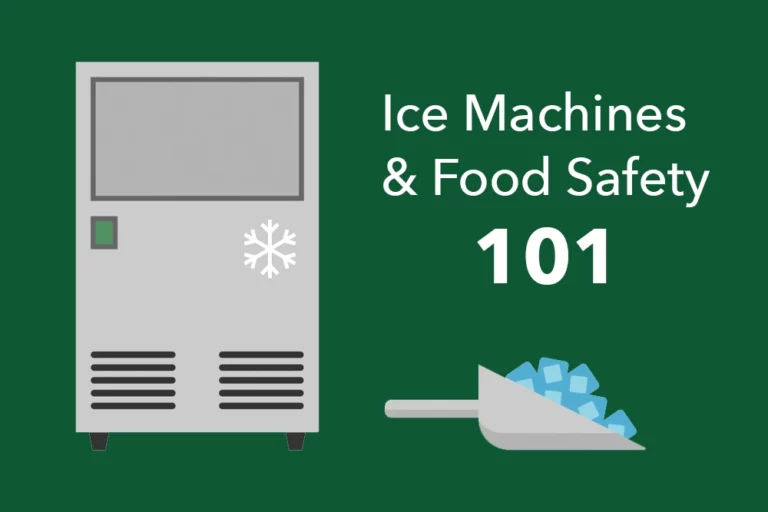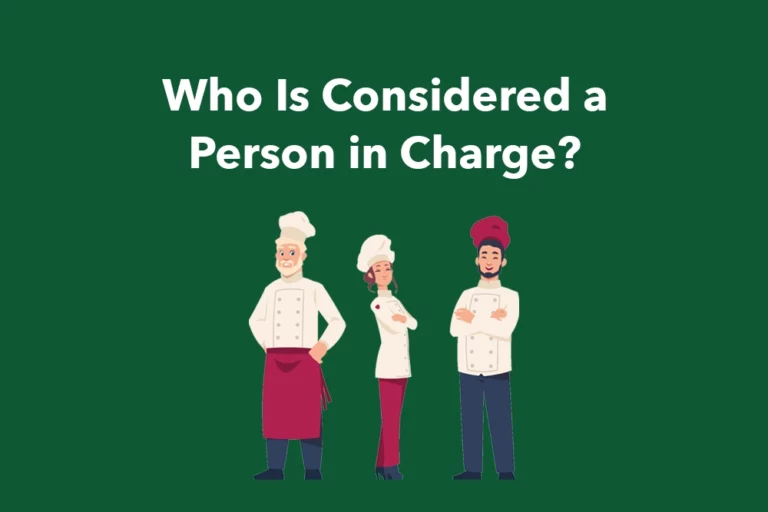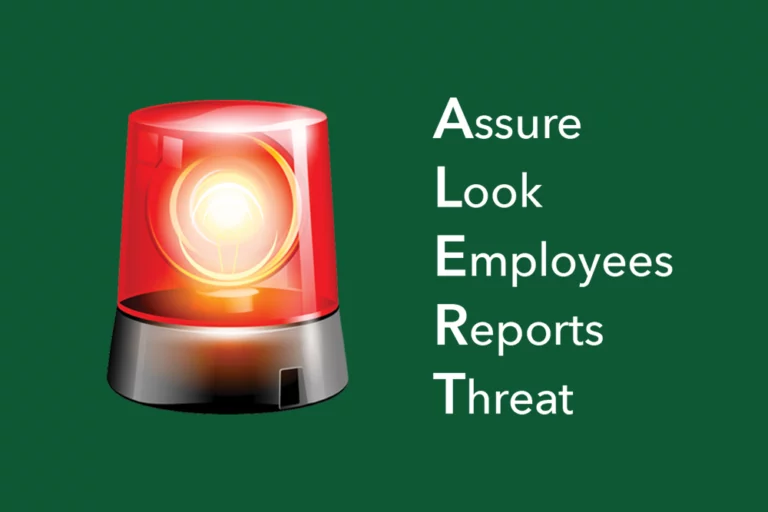What Is a Food Safety Manager Certification?
Food establishments have the important responsibility of preventing foodborne illness outbreaks.
While all staff must be knowledgable in safe food handling practices, the manager or person in charge must be the most knowledgable.
To obtain and demonstrate this knowledge, most places require that at least one person — often per shift — be a certified food protection manager (CFPM) or food safety manager.
This article explains everything you need to know about a food safety manager certification, including what it is, who needs it, how to get it, and more.

What is food manager certification?
Many organizations may offer some type of food safety manager certification, but only those that are accredited by the ANSI-National Accreditation Board (ANAB) Conference for Food Protection (CFP) are accepted by health departments.
The CFP developed the standards that certification organizations must meet while ANAB ensures that the organization meets and complies with these standards.
ANAB is also the accrediting body for organizations that issue food handler cards, which are generally designed for workers in non-management positions. However, some people hold both a food handlers card and food manager certification.
To earn food manger certification from an accredited organization, you must pass a proctored exam, usually consisting of 60 to 90 multiple-choice questions.
The passing score may differ among the various organizations, with some offering a lower passing score and others a higher, though the cut-off score doesn’t necessarily indicate difficulty level of the exam.
The Certified Dietary Manager (CDM) credential is also widely-accepted, but is more specific to food managers that work in healthcare facilities like nursing homes.
Summary
While many organizations may offer some type of food safety certification, only organizations accredited by the ANAB-CFP are deemed valid by health departments.
Who needs food manager certification?
All types of food establishments generally follow the Food and Drug Administration (FDA) Food Code, though not every state follows the most recent version.
Still, the Food Code requires that each establishment have at least one person in charge during all hours of operation (1).
This person must be able to demonstrate to the health department knowledge of foodborne illness prevention, application of the Hazard Analysis and Critical Control Point (HACCP) principles, and the requirements of the Food Code.
Most states require that the person in charge demonstrate this knowledge by becoming a certified food safety manager through an ANAB-CFP-accredited organization.
This requirement applies to most places that store, prepare, serve, or sell food to people, including:
- cafes
- coffee shops and bakeries
- concession stands
- convenience stores
- conveyances like planes
- food banks
- food trucks
- grocery stores
- healthcare facilities
- markets
- restaurants
- satellite or catered eating locations
- schools and daycares
Thus, if you serve in a mangement role or are the designed person in charge, you will likely need to earn your food manager certification.

Food Manager Certification Prep Made Easy
Your best resource for preparing to pass the food safety manager certification exam with ease.
Summary
Most states require that at least one person serve as the person in charge during all hours of operation at a food establishment. This person usually must have certification as a food safety manager.
Food safety manager requirements by state
Because food safety is an important public health issue, most states require the person in charge or manager to have certification as a food safety manager.
Some states may not have a law requiring the certification, but these states have counties that do.
And, even if there is no state or county law, most employers require it as a condition of employment.
Here’s a look at each state and whether the food safety manager certification is required (2):
| State | Certified Food Protection Manager (CFPM) Required |
|---|---|
| Alabama | Yes |
| Alaska | Yes |
| Arizona | No state law, but many counties require it |
| Arkansas | Yes |
| California | Yes |
| Colorado | Yes |
| Connecticut | Yes |
| Delaware | Yes |
| Florida | Yes |
| Georgia | Yes |
| Hawaii | Yes |
| Idaho | Yes |
| Illinois | Yes |
| Indiana | Yes |
| Iowa | Yes |
| Kansas | Yes |
| Kentucky | Yes |
| Louisiana | Yes |
| Maine | Yes |
| Maryland | No state law, but many counties require it |
| Massachusetts | Yes |
| Michigan | Yes |
| Minnesota | Yes |
| Mississippi | Yes |
| Missouri | No state law, but many counties require it |
| Montana | Yes |
| Nebraska | No state law, but many counties require it |
| Nevada | No state law, but many counties require it |
| New Hampshire | Yes |
| New Jersey | Yes |
| New Mexico | Yes |
| New York | Yes |
| North Carolina | Yes |
| North Dakota | No state law, but many counties require it |
| Ohio | Yes |
| Oklahoma | No state law, but many counties require it |
| Oregon | Yes |
| Pennsylvania | Yes |
| Rhode Island | Yes |
| South Carolina | No state law, but many counties require it |
| South Dakota | Yes |
| Tennessee | Yes |
| Texas | Yes |
| Utah | Yes |
| Vermont | Yes |
| Virginia | Yes |
| Washington | Yes |
| West Virginia | Yes |
| Wisconsin | Yes |
| Wyoming | No state law, but many counties require it |
Some states may not require food safety manager certification if the food establishment is not serving time and temperature control for safety foods and only serves or sells commercially pre-packaged foods and beverages, like snack foods and carbonated beverages.
This is also true for establishments or events that only serve beverages like alcohol, though another type of certification may be required, such as alcohol service training.
Summary
Nearly every state requires food safety manager certification for those who serve in management roles or the person in charge.
How to get food manager certification
Obtaining food manager certification is different than earning a food handlers card.
Earning a food handlers card requires that you complete the course content and then pass a test.
However, you aren’t required to take any course before taking the exam to become a certified food manager and there are no other prerequisites, including education level — anyone who wants or needs the certification can take the exam.
Still, it’s wise to invest in training — which can take up to eight hours to complete — so you’re well-prepared, as you will end up spending more money and time if you don’t pass on the first try and have to retake it.
This free 100-question food manager practice test is a great way to see where your knowledge sits.
The exam will be proctored to ensure no cheating or fraudulent activity.
After passing the test, your certification will be good for five years, so you will have to renew it when the time comes by taking and passing another accredited exam.
Summary
There are no perquisites to take the test to become a certified food manager, but it’s wise to invest in training to make sure you’re better prepared to pass the first time.
The bottom line
Food safety manager certification is required in most places for those who serve as the manager or person in charge of a food establishment.
Earning your food manager certification proves that you possess the knowledge of foodborne illness prevention, application of the HACCP principles, and requirements of the Food Code.
To get certified, you must pass a test from an ANAB-CFP-accredited organization. There are no prerequisites to take the exam, but it’s a good idea to make sure you’re prepared by taking a course.
Food safety manager certification is good for five years from the date you earn it.

Food Manager Certification Prep Made Easy
Your best resource for preparing to pass the food safety manager certification exam with ease.






